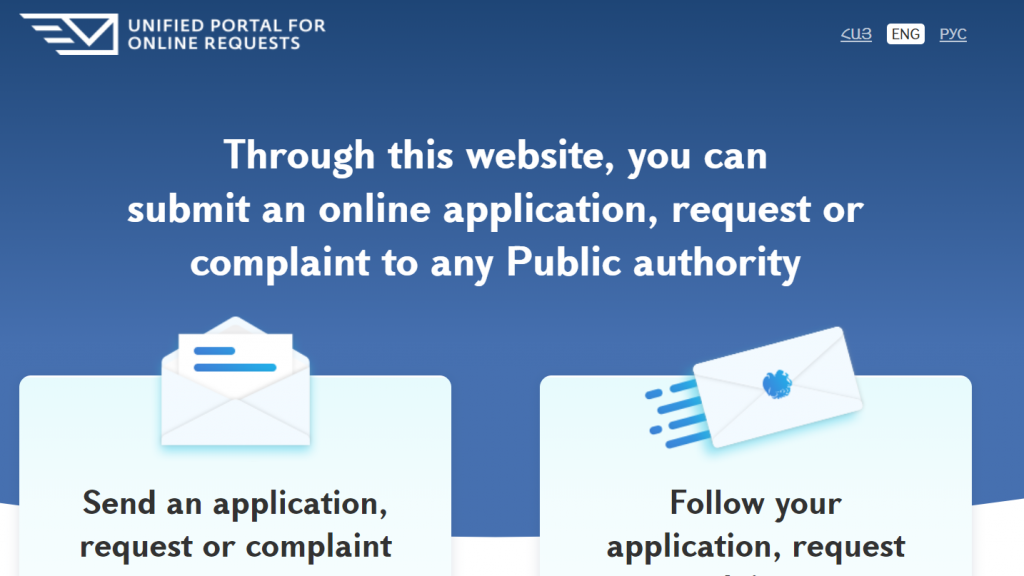by Mari Chakryan, Local Correspondent from Armenia
 E-Government tools can provide an efficient dissemination and management of information to citizens; ensure better public service delivery; and empower people through access to information and participation in public and policy decision-making. To put it simply, it can make communities work better and it can make citizens happier with the services they get.
E-Government tools can provide an efficient dissemination and management of information to citizens; ensure better public service delivery; and empower people through access to information and participation in public and policy decision-making. To put it simply, it can make communities work better and it can make citizens happier with the services they get.
The introduction of electronic innovative tools in Armenia is finally gaining momentum.
Freedom of expression also implies the freedom to seek, receive and disseminate information without interference from state and local governments and regardless of state borders according to the Constitution.
Various electronic tools are used to provide access to information. Recently a new platform www.e-request.am was launched by the RA Ministry of Justice with the financial support of the European Union.
The platform aims to provide citizens with the opportunity to electronically submit a request, application or complaint to state bodies and receive a response electronically. I tried to assess whether people are really interested in the platform and use it.
Despite the fact that the government has adopted a policy of accepting and discussing electronic requests even without a signature, a number of government bodies, referring to the platform, urge citizens to apply in writing or exclusively with an electronic signature. The NGO “Center for democracy and law” conducted a study according to which all respondents and participants of group discussions noted this circumstance as a disincentive. When you access the platform, the requirement to have an electronic signature is so repulsive that you do not want to establish any relations with the state authorities through the platform. 40 out of 50 people answered that they left the platform after meeting with this requirement when first accessing it, 15 out of 40 returned back out of curiosity and tried to understand the features of the platform and only 8 people sent a request or an application to the state body via the platform. The organization therefore proposed that the electronic signature should not be mandatory because not every citizen has it and this is an additional obstacle to the realization of the right to freedom of information.
I tried by myself to use it. I have sent a request without electronic signature just putting a scanned copy of the request and succeeded to obtain the confirmation of receipt in a few minutes. It did not seem difficult for me to use the platform. The only issues I could find is that the platform does not allow for large size files to be attached and the subject has to include only Latin characters. I would also like to add you can’t apply to all authorities via this platform, for example Ministry of Defense is not on the list.
At the end of September 2019, the Freedom of Information Center (FOI) NGO, one of the defenders of freedom of information in Armenia, called on civil society organizations and the media to obtain answers to questions from the competent authorities through www.e-request.am platform. I have learnt from Mane Madoyan, Coordinator of the NGO, that the initiative was aimed at informing about this service, as well as test and monitor the electronic platform and its performance, which can be useful primarily for the government itself.
On the basis of surveys conducted through the platform, statistics are generated that show which authorities received more requests for information and which responded to requests within the statutory time frame. Another graph shows users’ level of satisfaction regarding the answer received from authorities. According to statistics, 40-60 % of users are satisfied with the response of the public authority,.
Summing up the priorities and actual actions in the sphere of freedom of information in Armenia from May 2018 to the present day the FOI center brought this to the attention of the Government and civil society. The pattern of responding to requests for information is as follows:
- 15% of requests for information were answered late, violating the statutory 5-day period. On the other hand, , compared to the data in 2017, this figure decreased; previously it was 30 %.
- As for the content of the responses, in 2019 (as of September 26), the full-time response rate was 63% respectively clearly recording a positive trend compared to 34% in 2017.
- Compared to 23% of incomplete answers in 2017, the rate of incomplete answers was 13% already in 2019. A great positive development has been recorded in the case of silent refusals. That figure was 11% in 2017, 1 % in 2018 and 3% in 2019. The FOIC demands that no question remains unanswered, no matter how sensitive and vulnerable questions it may contain. On the other hand, the decrease in the number of silent refusals led to an increase in the number of unjustified refusals.
(Summarized data are presented in detail on the website of the organization: http://www.foi.am/hy/news/item/1834/).
E-governance significantly enables freedom of information, and helps to reduce administrative and corruption risks. And at the end of the day, it makes citizens feel more involved and more satisfied with public services. .
This article was produced by Mari Chakryan, the Project’s local correspondent and EaP Civil Society Fellow from Armenia in the framework of the EU-funded ‘Eastern Partnership Civil Society Facility – Regional Actions’ Project. Its contents are the sole responsibility of Mari Chakryan and do not necessarily reflect the views of the European Union or the Project
Read more about our local correspondents here.




